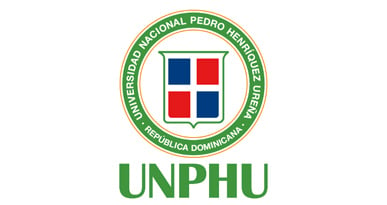Mostrar el registro sencillo del ítem
COVID-19 Increases the Risk of New Myocardial Infarction in Patients with Old Myocardial Infarction: A Retrospective Observational Study
| dc.contributor.author | El-Menyar, Ayman | |
| dc.contributor.author | Faidh Ramzee, Ahmed | |
| dc.contributor.author | Asim, Mohammad | |
| dc.contributor.author | Shahid, Fakhar | |
| dc.contributor.author | M Ata, Yaser | |
| dc.contributor.author | El Baba, Hamzah | |
| dc.contributor.author | Fino, Areen | |
| dc.contributor.author | P Nair, Arun | |
| dc.contributor.author | Peralta, Ruben | |
| dc.contributor.author | Almaslamani, Muna A | |
| dc.contributor.author | Suwaidi, Jassim Al | |
| dc.contributor.author | Al-Thani, Hassan | |
| dc.contributor.author | Rizoli, Sandro | |
| dc.date.accessioned | 2025-02-22T02:40:48Z | |
| dc.date.available | 2025-02-22T02:40:48Z | |
| dc.date.issued | 2024-10 | |
| dc.identifier.citation | El-Menyar A, Ramzee AF, Asim M, Shahid F, Ata YM, El Baba H, Fino A, Nair AP, Peralta R, Almaslamani MA, Al Suwaidi J, Al-Thani H, Rizoli S. COVID-19 Increases the Risk of New Myocardial Infarction in Patients with Old Myocardial Infarction: A Retrospective Observational Study. Clin Med Insights Cardiol. 2024 Dec 18;18:11795468241301133. Recuperado de: doi: 10.1177/11795468241301133. PMID: 39697349; PMCID: PMC11653445. | en_US |
| dc.identifier.uri | https://repositorio.unphu.edu.do/handle/123456789/6076 | |
| dc.description.abstract | We aimed to investigate the incidence of new acute myocardial infarction (AMI), in patients with Coronavirus disease (COVID-19) who had old MI. We hypothesized that COVID-19 increases the rate of repeated AMI in this population regardless of age and gender. METHODS: A retrospective analysis was conducted for adult patients admitted with COVID-19 and developed thromboembolic event (TEE) in 2020. Patients were categorized based on the history of old MI, new MI, age, and gender. RESULTS: Among 16,903 patients with COVID-19 who were admitted, 210 (1.2%) developed TEE (89% were males, 55% were <55 years old, and 80.5% had an old MI). COVID-19 was severe in 32% of cases. AMI occurred in 160 patients (42.5% STEMI and 57.5% NSTEMI). In patients with prior MI, 92.5% developed another AMI. NSTEMI was higher in patients with severe COVID-19 than STEMI (33% vs 21%). Patients with severe COVID-19 had higher mortality (39.4% vs 5.6%), fewer rates of prior MI (74% vs 83%), hypertension (40% vs 60%), and STEMI (31.8% vs 46.5%) than mild COVID-19 patients. On multivariable analysis, COVID-19 severity was an independent predictor of mortality (OR10; 95%CI 1.62-67.19) after adjustment for age, gender, diabetes mellitus, C-reactive protein, serum Ferritin, Procalcitonin, and Fibrinogen values, and prior or new MI. CONCLUSIONS: Patients with old MI could develop a new AMI in 80% of COVID-19. However, the mortality was higher in patients without a history of MI due to the severity of COVID-19. Attention should be given to patients who possess thrombotic risk factors in pandemics. | en_US |
| dc.language.iso | en | en_US |
| dc.publisher | Clinical Medicine Insights | en_US |
| dc.relation.ispartofseries | Volume 18: 1–11; | |
| dc.rights | Attribution-NonCommercial-NoDerivatives 4.0 Internacional | * |
| dc.rights.uri | http://creativecommons.org/licenses/by-nc-nd/4.0/ | * |
| dc.subject | Infarto del miocardio | en_US |
| dc.subject | Coronavirus | en_US |
| dc.subject | COVID-19 | en_US |
| dc.subject | Citocinas | en_US |
| dc.subject | Prueba serológica para COVID-19 | en_US |
| dc.subject | Enzima Convertidora de Angiotensina 2 | en_US |
| dc.title | COVID-19 Increases the Risk of New Myocardial Infarction in Patients with Old Myocardial Infarction: A Retrospective Observational Study | en_US |
| dc.type | Article | en_US |


